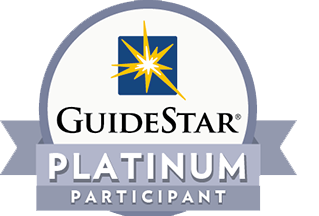Proof It Works
A growing body of research is turning decades of assumptions about cancer and exercise as well as other wellness choices on their heads, demonstrating the importance of an active lifestyle, nutrition and mind-body health to cancer survivors. Here is a cross-section of just some of the studies and emerging data underscoring the critical nature of each of these areas …and why we do what we do.
Breast Cancer Treatments Can Raise Risk of Heart Disease, American Heart Association Warns
February 2, 2018, The Washington Post
Lifesaving therapies like chemotherapy and radiation can cause heart failure and other serious cardiac problems, sometimes years after treatment, says recent research. It does not say avoid the treatments but rather take steps to prevent or minimize the cardiac risks by exercising regularly and sticking to a healthy diet. Click here to read more.
Exercising Helps Boost Chance of Survival for Cancer Patients
July 26, 2016, Collective Evolution
“Evidence now reveals that exercise itself protects our bodies against cancer in complex ways. And for patients who have cancer, exercise can significantly increase their chances of survival. Danish researchers credit the adrenaline to this theory.” Click here to read more.
The Exercise Cure
September 1, 2016, TIME
New research is revealing that even small amounts of physical activity trigger dozens of beneficial changes in the body, including helping you recover from a major illness. Click here for the article.
Exercise Is the Best Cure for Fatigue Caused by Cancer
March 3, 2017, NBC News
Exercise helps people battling the fatigue caused by cancer and by its treatment — and usually does it better than drugs do, according to a recent item from NBC News. For more, click here.
For more articles and information on exercise and cancer survivorship, click here.
Nutrition for Cancer Survivors
National Comprehensive Cancer Network
Research shows that the best formula for staving off another bout of cancer is proper nutrition combined with weight control and exercise. Click here to read more.
Survivorship: Nutrition and Weight Management
October 2014, National Institutes of Health
The National Comprehensive Cancer Network (NCCN) Guidelines for Survivorship recommend that cancer survivors be encouraged to achieve and maintain a healthy lifestyle, including attention to weight management, physical activity, and dietary habits. Click here to read more.
Nutrition and Cancer Survivorship
Dana-Farber Cancer Institute
“Research really supports eating a plant-based diet in terms of a nutrition approach to cancer survivorship,” according to Stacy Kennedy, MPH, RD, LDN. It is important for everyone to eat well for overall health, but following a healthy diet may be even more important for cancer survivors. Click here to read more.
Impact of Nutrition and Exercise on Cancer Survival
November-December 2008, National Institutes of Health
This article discusses these guidelines, including more recent publications regarding obesity, exercise, diet, and nutrient supplement use in relation to cancer outcomes including survival. Click here to read more.
For more articles and information on nutrition and cancer survivorship, click here.
Yoga May Help the Side Effects of Cancer Treatment
April 10, 2017, TIME.com
“A new study suggests that doing yoga twice a week may improve quality of life for men being treated for prostate cancer and may help reduce the side effects of radiation, which include fatigue, sexual dysfunction and urinary incontinence.” Click here to read more.
Mind-Body Practices in Cancer Care
May 12, 2015, National Institutes of Health
“Uncontrolled stress can have a negative effect on a number of biological systems and processes leading to negative health outcomes. While some distress is normal, it is not benign and must be addressed. …Mind-body techniques such as meditation, yoga, tai chi, and qigong have been found to lower distress and lead to improvements in different aspects of quality of life.” Click here to read more.
How Meditation Can Help Protect The Body After Cancer
November 5, 2014, Huffington Post
“Mindfulness meditation is known to have a positive emotional and psychological impact on cancer survivors. But some groundbreaking new research has found that meditation is also doing its work on the physical bodies of cancer survivors, with positive impacts extending down to the cellular level.” Click here to read more.
MD Anderson study: Qigong Helps Breast Cancer Patients
February 8, 2013, Natural News
“Qigong, an ancient mind-body practice which has been used for at least 4,000 years across Asia to support both spiritual health and to prevent disease, appears to not only help breast cancer patients cope with stress but – by doing so – may have an important physiological impact, too.” Click here to read more.
For more articles and information on mind-body health and cancer survivorship, click here.
Number of U.S. Cancer Survivors Expected to Exceed 20 Million by 2026
June 2, 2016, American Cancer Society
A new report by the American Cancer Society – in collaboration with the National Cancer Institute – estimates there are more than 15.5 million cancer survivors alive in the US today, and that number will grow to more than 20 million by 2026. Click here to read more.
Childhood Cancer Survivors: The Long Road Ahead
December 11, 2015, Journal of the National Cancer Institute
“Fifty years ago, childhood cancers were largely fatal; today the survival rate tops 83%. But as the ranks of these survivors reaching adulthood and middle age pass 400,000, so do the late effects from their lifesaving treatments. …Childhood cancer is no longer a death sentence, but it’s a life sentence.” Click here to read more.
Can ‘Prehabilitation’ Benefit Cancer Patients?
January 24, 2017, Dana-Farber Cancer Institute
“The benefits of exercise in helping cancer patients deal with fatigue, mood swings, and other issues experienced during and after treatment are well documented. Now physician-scientists are investigating whether a new field known as cancer prehabilitation can also be advantageous.” Click here to read more.
What Percentage of People Survive Cancer?
2014, American Cancer Society
The 5-year relative survival rate for all cancers diagnosed in 2004-2010 was 68%, up from 49% in 1975-1977 (see page 18). The improvement in survival reflects both the earlier diagnosis of certain cancers and improvements in treatment. For more information, click here.
For more articles and information on cancer survivorship in general, click here..
40% of Cancers Are Linked to Being Overweight
October 15, 2017, Time.com
It has nothing to do with beautiful, fabulous you, at least as far as how you look goes. It has everything to do with your health: 40% of cancers are linked to being overweight. So, if you are carrying extra pounds, lose them! For more info, click here.
Eating Plant-Based Diet, Exercising Can Reduce Breast Cancer Risk
October 4, 2016, Midland Health
Cruciferous vegetables such as broccoli boost the activity of detoxifying enzymes in your liver. Women who ate two or more servings of vegetables a day had a significantly decreased risk of a kind of breast cancer that is hard to treat, estrogen and progesterone- receptor-negative. Click here to read more.
Exercise Tied to Lower Risk for 13 Types of Cancer
May 18, 2016, The New York Times
“Anyone who still needs motivation to move more may find it in a new study showing that, in addition to its other health benefits, exercise appears to substantially reduce the risk of developing 13 different varieties of cancer.” Click here to read more.
American Cancer Society Guidelines on Nutrition and Physical Activity for Cancer Prevention
February 5, 2016, American Cancer Society
The World Cancer Research Fund estimates that about 20% of all cancers diagnosed in the US are related to body fatness, physical inactivity, excess alcohol consumption, and/or poor nutrition, and thus could also be prevented. Click here to read more about lifestyle choices that can help prevent cancer.
For more articles and information on prevention, click here.
Our Manifesto.
Mission exists to help survivors punch through to the other side of cancer and stay there. #NoLimits

